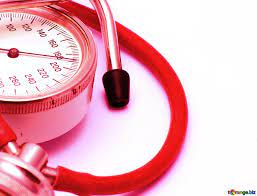A potential link between high coffee consumption and temporary increases in blood pressure, but the evidence overall does not conclusively support a direct and sustained causal relationship between moderate coffee intake and chronic high blood pressure.
It’s important for individuals to consider their unique health circumstances and consult with their healthcare provider regarding their coffee consumption. Lets explore does drinking coffee cause high blood pressure ?
Caffeine and Blood Pressure

When discussing the relationship between coffee and high blood pressure, it’s crucial to start with caffeine, the active component in coffee. Caffeine is a natural stimulant known for its ability to enhance alertness and energy levels.
How Caffeine Affects Blood Pressure
Caffeine’s immediate effect on blood pressure may be attributed to its stimulant properties. It can cause the heart to beat faster and temporarily tighten blood vessels, leading to a rise in blood pressure.
This effect is more pronounced in individuals who consume caffeine infrequently, as regular consumers often develop a tolerance.
The Role of Adenosine
Caffeine blocks the action of adenosine, a neurotransmitter that plays a role in dilating blood vessels. By inhibiting adenosine, caffeine causes blood vessels to constrict, leading to an increase in blood pressure.
This effect is usually temporary, and blood pressure often returns to baseline levels once the caffeine is metabolized.
Coffee Consumption: How Much is Too Much?
Determining the right amount of coffee is crucial for managing its effects on blood pressure. While coffee is enjoyed by many worldwide, excessive consumption can lead to negative health consequences.
Safe Limits of Coffee Consumption
The general consensus among health experts is that moderate coffee consumption, typically defined as 3-4 cups per day, is unlikely to cause significant harm to most people. This amount of coffee provides approximately 300-400 mg of caffeine, which is considered a safe limit for most adults.
Individual Variability
It’s important to note that individual tolerance to caffeine varies. Factors like body weight, age, medication use, and individual sensitivity can influence how one reacts to coffee.
For some, even a small amount of coffee can significantly increase blood pressure, while others may not experience any noticeable change.
The Short-Term Effects of a Cup of Coffee on Blood Pressure
Understanding the immediate effects of drinking a single cup of coffee is essential, especially for those with existing high blood pressure or heart-related issues.
Immediate Rise in Blood Pressure
Following the consumption of a cup of coffee, individuals might experience a short-term rise in blood pressure. This increase typically occurs within 30 minutes to an hour after drinking coffee and can last for several hours. The extent of the rise in blood pressure varies but is generally modest.
Habitual vs. Non-Habitual Drinkers
The blood pressure response to coffee may differ between habitual and non-habitual drinkers. Those who drink coffee regularly may develop a tolerance to its blood pressure-raising effects, while occasional drinkers might see a more pronounced response.
This tolerance develops as the body becomes accustomed to the daily intake of caffeine, potentially diminishing its impact on blood pressure.
while caffeine can lead to a temporary increase in blood pressure, its effects vary based on individual factors and consumption habits.
Moderate coffee consumption is generally safe for most people, but those with existing hypertension or sensitivity to caffeine should exercise caution and consult with healthcare professionals.
Long-Term Coffee Drinking: Heart Health Implications
The long-term effects of coffee drinking on heart health and blood pressure are complex . Understanding these effects is crucial for those who include coffee as a regular part of their diet.
The Protective Effects of Coffee
Long-term coffee consumption might have protective effects against certain heart conditions. Habitual coffee drinkers may have a lower risk of certain types of heart disease.
This protective effect is thought to be due to the presence of antioxidants in coffee, which can help reduce inflammation and improve vascular function.
Coffee and Risk of Hypertension
The relationship between long-term coffee drinking and the development of hypertension (high blood pressure) is not straightforward.
While some studies indicate no significant increase in the risk of developing hypertension with regular coffee consumption, others suggest a potential link, particularly at higher consumption levels.
Individual Differences
As with the short-term effects, individual responses to long-term coffee consumption vary. Factors such as genetic predisposition, lifestyle, and overall diet play a significant role in determining the impact of coffee on heart health and blood pressure.
Decaffeinated Coffee: A Safer Alternative?
For those concerned about the effects of caffeine on blood pressure, decaffeinated coffee presents itself as a viable alternative.
Lower Caffeine Content
Decaffeinated coffee offers the same taste and experience of coffee without the significant amount of caffeine. This makes it a suitable option for those who are sensitive to caffeine or have been advised to reduce their caffeine intake due to hypertension or other health concerns.
Health Benefits
Decaffeinated coffee still contains the beneficial antioxidants found in regular coffee. Therefore, it can offer some of the same protective benefits against heart disease without the potential blood pressure-raising effects of caffeine.
Coffee, Hypertension, and Heart Disease: What Research Says
The link between coffee consumption, hypertension, and heart disease is a subject of extensive research, yielding mixed results.
Differing Study Results
Some studies suggest that moderate coffee consumption does not significantly increase the risk of developing hypertension or heart disease. In contrast, others point to a potential association between heavy coffee consumption and an increased risk of these conditions.
Understanding the Research
It’s important to approach the research with a critical eye. Many studies are observational and can only show associations, not cause-and-effect relationships. Lifestyle factors, such as diet and exercise, which often accompany coffee consumption, also play a crucial role in heart health and blood pressure.
Individual Differences: Why Coffee Affects People Differently
The way coffee influences blood pressure and overall health varies significantly among individuals, a phenomenon rooted in several factors.
Genetic Factors
Genetic makeup plays a crucial role in how one’s body processes caffeine. Some people have a genetic variant that leads to slower metabolism of caffeine. This slower processing can result in prolonged effects of caffeine in the body, including longer-lasting increases in blood pressure.
Tolerance to Caffeine
Regular coffee drinkers often develop a tolerance to caffeine. This means that the stimulatory effects of caffeine, including its impact on blood pressure, may diminish over time for habitual coffee consumers. Conversely, those who consume coffee less frequently may experience more pronounced effects.
Existing Health Conditions
Individuals with certain health conditions, especially those involving the cardiovascular system, may be more sensitive to the effects of caffeine. For example, people with hypertension or arrhythmias might find that caffeine exacerbates their condition, while others with no such issues may not notice any adverse effects.
Coffee and Tea: Comparing Caffeine Effects

While both coffee and tea contain caffeine, their impacts on the body, particularly regarding blood pressure, can differ.
Caffeine Content
Generally, coffee contains more caffeine per serving compared to tea. This higher caffeine concentration in coffee means it might have a more significant impact on increasing blood pressure compared to tea.
Additional Components
Tea, especially green tea, contains catechins and other compounds that might offer health benefits, including potential blood pressure-lowering effects. These compounds may counterbalance the impact of caffeine, making tea a potentially healthier choice for those concerned about blood pressure.
Lifestyle, Diet, and Coffee: The Bigger Picture
The effects of coffee on health cannot be viewed in isolation; they are part of a broader lifestyle and dietary pattern.
Balanced Diet and Exercise
A healthy diet and regular physical activity are vital for maintaining normal blood pressure and overall cardiovascular health. The benefits or drawbacks of coffee consumption should be considered within the context of one’s overall diet and lifestyle habits.
Synergistic Effects
Certain dietary patterns, such as the Mediterranean diet, which is rich in fruits, vegetables, whole grains, and healthy fats, may synergize with moderate coffee consumption, contributing to improved heart health.
Individual Lifestyle Choices
It’s essential for individuals to consider their unique lifestyle choices and health conditions when determining their coffee intake. For some, coffee might fit well into a healthy lifestyle, while for others, especially those with hypertension or sensitivity to caffeine, it may be necessary to limit consumption.
Practical Tips: Balancing Coffee Drinking and Blood Pressure Management
- Limit coffee intake to 3-4 cups per day.
- Monitor blood pressure response to coffee.
- Consider switching to decaffeinated coffee if sensitive to caffeine.
- Maintain a healthy lifestyle to mitigate any potential negative effects of caffeine.
Q: How does drinking coffee affect blood pressure?
A: Coffee consumption has been shown to cause a temporary increase in both systolic and diastolic blood pressure, but this effect tends to be short-lived and may not significantly impact overall blood pressure levels in the long term.
Q: Is it safe for people with high blood pressure to drink coffee?
A: Individuals with high blood pressure may be more sensitive to the effects of caffeine, which can temporarily raise blood pressure.
Q: Is it advisable to avoid coffee to maintain lower blood pressure?
A: While excessive caffeine intake can have temporary effects on blood pressure, moderate coffee consumption does not seem to significantly raise blood pressure levels in the long term for most individuals. It is important for people with high blood pressure to monitor their response to caffeine and adjust their coffee consumption accordingly.
Q: Are there any other beverages that can help lower blood pressure?
A: In addition to coffee, various studies have suggested health benefits from regular tea consumption, particularly green tea, which may have a positive impact on blood pressure levels.
Q: Can heavy coffee drinking increase the risk of heart disease?
A: Heavy coffee drinking has been associated with potential adverse health effects, but the link between coffee consumption and heart disease risk remains inconclusive. It is advisable to maintain a balanced and moderate approach to coffee consumption as part of a healthy lifestyle.


Leave a Reply